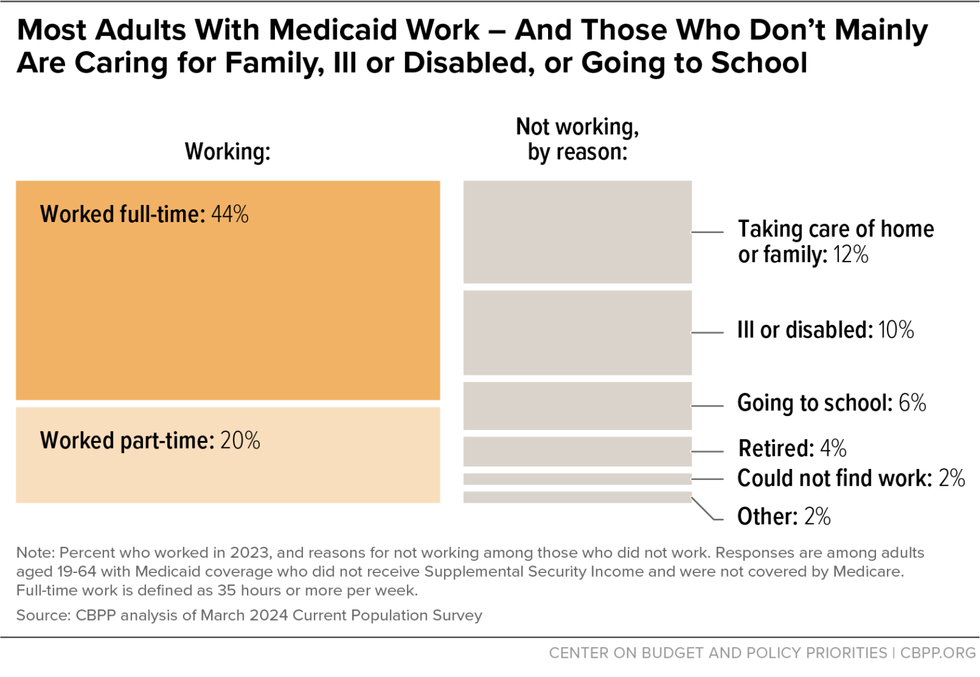New proof North Carolina's dysfunctional GOP is bent on destruction
It’s been a hallmark of most of the noteworthy political movements that have emerged and risen to power in modern times that their leaders aspired to use government power to improve society. Plenty of these movements were deeply flawed or downright fraudulent, but virtually all – even some of the worst authoritarian parties and leaders –have at least professed to have a plan for using the levers of power in an intentional way to make life better for average people.
Here in the U.S., until recently, even archconservatives who opposed many social welfare programs were still committed to strengthening the national defense in order to help defend the nation and its allies against foreign adversaries, and to boosting basic components of societal infrastructure that they saw as aiding in that effort — like public education, transportation and public health.
Weirdly and disturbingly, however, this is not the case with the MAGA movement. While it’s true that Donald Trump regularly dispenses absurd and delusional promises to magically solve every societal ill – promises that not even his most ardent supporters take seriously – when it comes to fashioning a real agenda for getting things done, the modern right is consistently and harmfully silent.
Indeed, save for their efforts to: a) enhance state police power vis a vis immigrant communities and women seeking to control their own reproduction, and b) strengthen their own capacity to remain in power through gerrymandering and election-rigging tactics, it’s clear that the main objective of MAGA conservatives when it comes to public structures is tearing things down.
Nowhere is this better exemplified than in North Carolina where, after a decade and a half of conservative Republican dominance in state government, it’s virtually impossible to identify any public system or structure – public and higher education, public health, environmental protection, transportation, courts and corrections — in which things are demonstrably better than they were at the start of GOP rule.
And nowhere is this sad pattern better exemplified today in North Carolina than in the current destructive budget stalemate between conservative leaders at the General Assembly.
North Carolina is now almost five months into the 2025-26 fiscal year, and it continues to operate without a new state budget. As a result, numerous core public structures and systems – perhaps most notably, its already fragile and dramatically under-resourced Medicaid health insurance program – are operating under old law and old, inadequate appropriations.
Mind you, this is not – as an outsider might superficially surmise – the result of a conflict between the state’s Republican-controlled legislature and its Democratic governor.
No, in this case, GOP legislative leaders never even passed a comprehensive budget bill for Democratic Gov. Josh Stein to consider. Instead, the state is being held hostage to their internal disputes over how drastically and rapidly to further eviscerate the state’s regressive and inadequate income tax structure, as well as a series of other mostly petty matters – like Senate Leader Phil Berger’s need to appear sufficiently reactionary as he tries to fend off a far-right Republican primary challenger in 2026.
Gov. Stein has done his best to break the logjam and direct public attention to the destructive impact the stalemate is having – particularly on the Medicaid program, where the lack of funding certainty has forced his Health and Human Services department to slash reimbursements to providers to maintain program solvency. Earlier this month, he took the extraordinary step of calling lawmakers to Raleigh for a special legislative session to address the rapidly metastasizing problem that is likely to soon lead to preventable deaths of people no longer able to access health care.
It was precisely the kind of strong and common-sense leadership that North Carolinians undoubtedly expected when they elected Stein by a wide margin last November. The session was supposed to have commenced on Monday.
Unfortunately, legislative leaders were unmoved. Much like the Republicans in Washington who, despite their control of both Congress and the White House, allowed their own internal conflicts to translate into a record-breaking federal government shutdown and huge new health insurance rate hikes for millions of Americans, state Senate and House leaders have simply ignored Stein’s directive and, in true Trumpian fashion, tried to disavow blame for the Medicaid crisis that their own failure to act has created.
And so, it appears that, absent a hard-to-imagine political 180, Republican leaders will stick to their plan to hold no further votes during the on-again, off-again 2025 legislative session, thereby allowing the Medicaid program – and dozens of other vitally important public structures and services — to wither on the vine while thousands of North Carolinians needlessly suffer.
And once again, instead of coming together to intentionally use the levers of government power to make life better for the many, Republican leaders will, in true MAGA fashion, remain committed to a do-nothing agenda for which the only discernible unifying principles are dysfunction and cruelty.
- GOP official tied to voting scandal now overseeing 'election integrity' in key swing state ›
- Departing GOP senator delivers stark warning for Republicans in key Senate race ›
- GOP elections official charged with putting drugs in granddaughters' ice cream ›
- North Carolina judges rule Republicans 'acted unconstitutionally' in strategic voter suppression efforts ›

